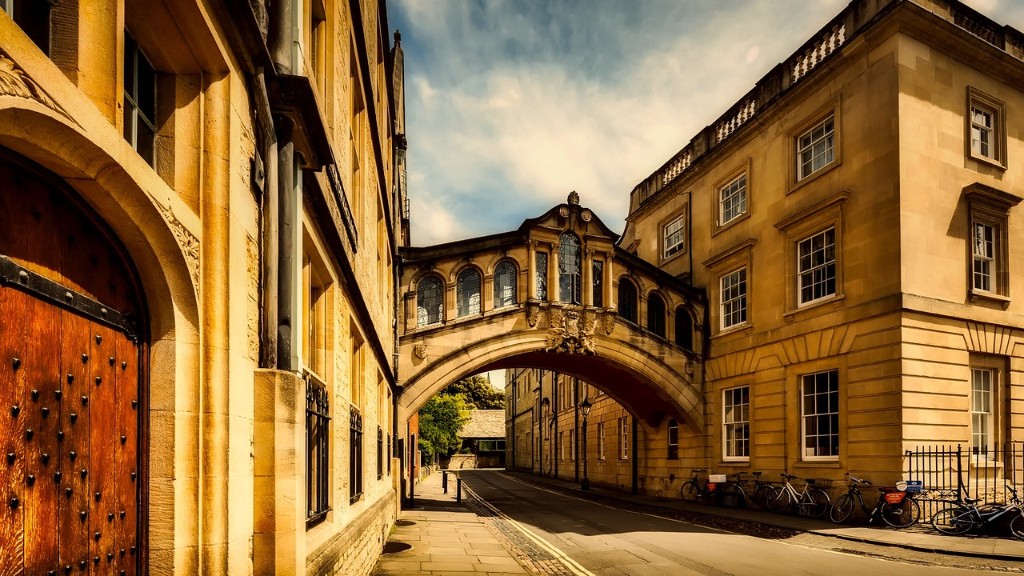As the world grapples with the ongoing global pandemic crisis, most countries are beginning to get a handle on the situation. And yet, in recent times, the uncertainty surrounding travel to and from countries in Europe is still looming. One curiosity that remains to be answered is: are the borders open to travel to London?
For now, the restriction on international travel from the UK government is that in non-exempt cases, anyone arriving in the UK by boat, plane or train, will be required to provide evidence of a negative COVID-19 test result taken up to 72 hours prior to departure. For people travelling to the UK from international destinations, the UK Borders are closed to non-essential travel. But for those allowed entry to the country, the 14-day quarantine rule must be followed.
As explained by Dr. Joe Fenton, a public health expert from Plymouth University, those travelling from destinations not on the travel corridor list must follow the safety regulations set by the UK government. These include a negative result from a COVID-19 test, taken no more than 72 hours before departure and a 14-day quarantine upon arrival. He says, “It is really important that everyone follows these guidelines closely and takes responsibility for their own safety and that of those around them.”
The rules may vary for different areas in the UK, but being aware of UK’s latest travel regulations is key. For instance, travellers need to provide proof of having a booked accommodation in the UK during their stay and details of their journey. Furthermore, anyone arriving in the UK from abroad must complete a passenger locator form.
However, the picture is not completely bleak. A spokesperson from the British Embassy in Washington, DC commented on the current relaxed restrictions for certain countries. “We would like to encourage people to travel, but this can only be done safely and responsibly. As a result, there are still restrictions in place and people should be mindful of the country they are travelling to and the rules that are in place to protect public health.”
With the influx of tourists having a huge impact on economic activity in the country, and the number of cases of the virus still increasing in many areas, the government’s decision to maintain, or possibly even tighten, the restrictions on international travel seems to be justified. Indeed, this was examined in a recent report by the British Medical Journal, which concluded that a further reduction of the number of people allowed to travel into and within the UK could help reduce virus transmission rates.
Therefore, although some countries are exempt from the current restrictions and one can, in theory, travel to London, it is essential to take into account the situation in the city and other places one plans to visit. It is essential that travellers pay attention to the requirements, restrictions, and safety measures, and above all, the advice of the health and generic authorities.
Travel Restrictions and Safety Precautions
As of August 2020, all arrivals to the UK, including from any exempt country, are obliged to submit full contact details and address for the 14-day quarantine period. Furthermore, all passengers must take a COVID-19 test within 72 hours prior to their departure, the results of which must be shown at the UK border.
For the exempt countries, anyone arriving in the UK is required to take a test within two days of arrival and self-isolate themselves until they receive a negative result. These two rules apply even to those arriving in Britain from areas with comparatively lower numbers of cases. Moreover, if areas in the UK report a spike in cases, the regional government can introduce additional travel restrictions to contain the spread.
In order to make the travellers experience all the more secure and safe, the UK has put additional measures in place. These include enhanced airport health screens, regular temperature checks and contact tracing. The government has also increased the number of medical personnel and testing services to facilitate quick and effective processing of arriving travellers.
Additionally, the authorities have made mobile testing units available at airports, ferry ports, train stations and other locations. The UK Department for Transport, additionally, has updated its Risk Assessment Matrix, which rates countries and regions based on different factors, such as the level of community transmission and testing requirements. In this way, those planning travel to the UK, can get an understanding of how to assess the risks to health that they may face when arriving in the country.
Vaccine Rollout and Its Impact
As with most other countries that have applied strict measures to contain the spread of the virus, the UK has made big strides in its vaccine rollout programme. The government has been investing funds in the rollout of the vaccines with an aim to protect its most vulnerable citizens.
The UK government has said that it is on track to vaccinate its entire adult population by September. As it gets closer to that deadline, the government is likely to review its current international travel restrictions and decide on a few relaxed options.
Nevertheless, for now, as the majority of the population in the UK is still waiting to get their first dose of the vaccine, or even their second dose to gain full protection, it is really important to continue to follow safe behaviours such as social distancing, avoiding crowds, wearing face masks and regular hand hygiene.
Furthermore, as the government continues to review its international travel regulations each month, travellers should stay updated on the latest guidelines and safety protocols to ensure a safe and healthy journey for all concerned.
COVID-19 Numbers and Essential Travel
The COVID-19 situation is monitored carefully by the government, and that is why it has decided to keep international travel restrictions and protocols in place. As of now, the numbers of infected people are still increasing in many countries, and that is why the government has decided to keep the borders rather closed.
The UK government has outlined what it classifies as essential travel. In medical terms, this means a visit to the UK to receive treatment, to be cared for by family members, or to donate organs or be a donor or a surrogate mother. In non-medical terms, essential travel could include visits for business purposes, or funerals or religious ceremonies. It is important to bear in mind, however, that even in those cases, a negative COVID-19 test is needed before departing for the UK.
Additionally, while many people are likely to be disappointed by the fact that international travel to and from the UK is not currently possible, it is the UK government’s official policy that people should still be able to pursue their non-essential travel and leisure activities, provided they follow the essential safety protocols and precautions.
Local Advisory and the Timeframe for Change
In order to make an informed decision, it is essential that one follows the guidance set out by the respective local health and generic authorities. It is important to be aware that changes to the travel regulations may be implemented on a short notice, without any prior notice. Therefore, having up-to-date and accurate information is an important factor when it comes to making a decision regarding travel to the UK.
One of the recent changes that the UK government has announced is that anyone arriving from a country not on the travel corridor list must quarantine for 10 days, to cut down the quarantine period from 14 days to 10. Furthermore, the government also announced that from the 15th June 2021, passengers arriving in the UK may be entitled to a further reduction in the time they must wait in quarantine – from 10 days to five.
When it comes to changes in the coming months, however, this still remains unclear. As Dr. Fenton of Plymouth University points out, “It is currently difficult to predict how the situation will evolve in the coming months, and if the current travel restrictions are likely to be eased or tightened further. Therefore, the best approach for travellers is to stay up to date with the government’s guidelines, as they may change without any prior notice”.
Implications on Tourism and Travel Industry
The COVID-19 pandemic has had a severe impact on the travel and aviation industry. With many countries, including the UK, implementing strict travel restrictions to protect public health, the industry has taken a direct hit. One example of the implications is the struggles of airlines. Many are facing bankruptcy due to an immense lack of travelers, resulting in huge losses each tan day.
Moreover, border restrictions have had a significant affect on tourism in the country. Many tourists’ attractions and businesses had to cease their services and activities, resulting in loss of jobs and further financial struggles for many.
As travel restrictions have kept most people from visiting the country, this lead to a significant drop in foreign exchange earnings. This affect can seen in the official statistics for international visitor arrivals to the UK which, in the year 2020, fell to a low of 18.3million from the 39.1million in the previous year.
The restrictions have had a notable impact on the UK travel industry, and the ripple effects have been felt in all sectors, from aviation to hotels and the tourism industry alike. It is important to bear in mind that in order to recover from the economic devastation, it is essential that businesses in all sectors get the support they need to recover.
Conclusion
Therefore, it is evident that the UK government’s restrictions on international travel have been carefully considered and in place for now, but the current status may change in the near future. While the exact timeline is unknown, travelling to





